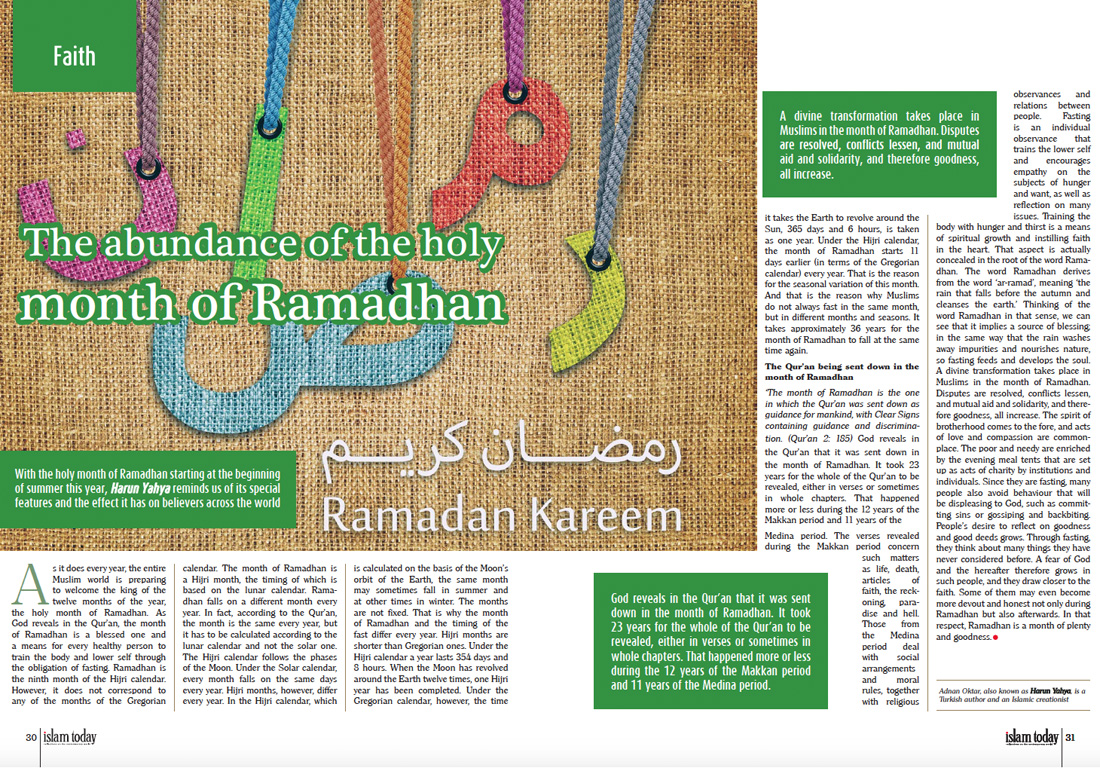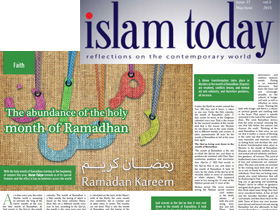
As it does every year, the entire Muslim world is preparing to welcome the sultan of the 12 months of the year, Ramadan. As Allah reveals in Surat al-Baqara, the month of Ramadan is a blessed one and a means for every healthy person to train the body and lower self through the obligation of fasting.
The month of Ramadan is the one in which the Qur’an was sent down as guidance for mankind, with Clear Signs containing guidance and discrimination. (Surat al-Baqara, 185)
Allah reveals in this verse from Surat al-Baqara that the Qur’an was sent down in the month of Ramadan. The revelation began in the cave of Hira on the Night of Power in Ramadan, with the first 5 verses of Surat al-‘Alaq.
Ramadan is the ninth month of the Hijri calendar. However, it does not correspond to any of the months of the Gregorian calendar we use in everyday life. The month of Ramadan is a Hijri month, the timing of which is based on the Hijri calendar.
Why does Ramadan fall in a different month every year?
Ramadan falls on a different month every year. In fact, according to the Qur’an, the month is the same every year, but it has to be calculated according to the Lunar calendar and not the Solar one. In order to appreciate this, we need to examine the differences between the Hijri and Gregorian calendars.
The Hijri calendar is a Lunar one that follows the phases of the Moon. Under the Solar calendar, every month falls on the same days every year. Hijri months, however, differ every year. Months determined on the basis of the Hijri calendar, which is calculated on the basis of the Moon’s orbit of the Earth, the same month may sometimes fall in summer and at other times in winter. The months are not fixed. That is why the month of Ramadan and the timing of the fast differ every year.
Hijri months are shorter than Gregorian ones. Under the Hijri calendar a year lasts 354 days and 8 hours. When the Moon has revolved around the Earth 12 times, one Hijri year has been completed.
Under the Gregorian calendar, however, the time it takes the Earth to revolve around the Sun, 365 days and 6 hours, is taken as 1 year. Under the Hijri calendar, the month of Ramadan starts 11 days earlier (in terms of the Gregorian calendar) every year. That is the reason for the seasonal variation in this blessed month. And that is the reason why Muslims do not always fast in the same month, but in different months and seasons.
It takes approximately 36 years for the month of Ramadan to fall at the same time again.
The Qur’an being sent down in the month of Ramadan and the abundance in that month
The Qur’an was sent down in the month of Ramadan, and it took 23 years for the whole of the Qur’an to be revealed, either in verses or sometimes in whole surahs. That happened more or less during the 12 years of the Meccan period and 11 years of the Medina period. The verses revealed during the Meccan period concern such matters as life, death, articles of faith, the reckoning, paradise and hell. Those from the Medina period deal with social arrangements and moral rules, together with religious observances and relations between people.
Fasting is an individual observance that trains the lower self and encourages empathy on the subjects of hunger and want, as well as reflection on many issues. Training the body with hunger and thirst is a means of spiritual growth and instilling faith in the heart. That aspect is actually concealed in the root of the word Ramadan.
The word Ramadan derives from the word “ar-ramad, meaning ”the rain that falls before the autumn and cleanses the earth.” Thinking of the word Ramadan in that sense, we can see that it implies a source of blessing; in the same way that the rain washes away impurities and nourishes nature, so fasting feeds and develops the soul.
A serious divine transformation takes place in Muslims in the month of Ramadan. Disputes are resolved, conflicts lessen, and mutual aid and solidarity, and therefore goodness, all increase. The spirit of brotherhood comes to the fore, and acts of love and compassion are commonplace. The poor and needy are enriched by the evening meal tents that are set up and acts of charity by institutions and individuals.
Since they are fasting, many people also avoid behavior that will be displeasing to Allah, such as committing sins or gossiping and backbiting. People’s desire to reflect on goodness and good deeds grows. Through fasting, they think about many things they have never considered before. A fear of Allah and the hereafter therefore grows in such people, and they draw closer to the faith. Some of them may even become more devout and honest not only during Ramadan but also afterward. In that respect, Ramadan is a month of plenty and goodness.
Adnan Oktar's piece on Islam Today:


